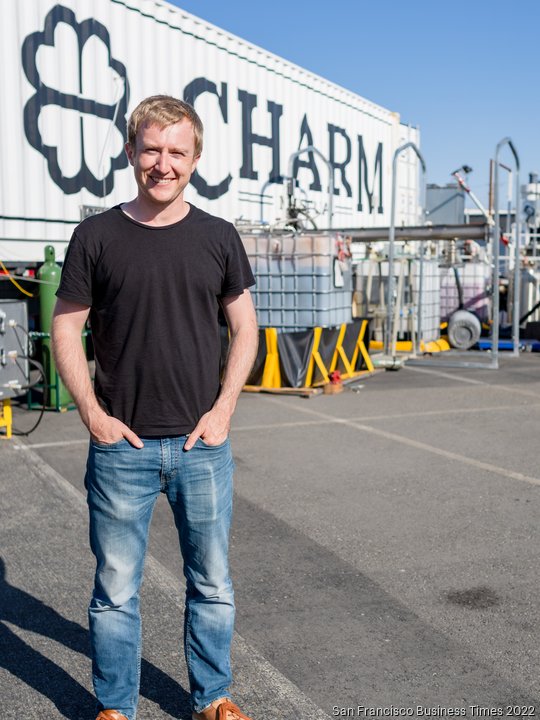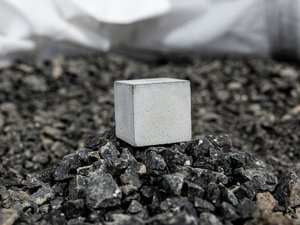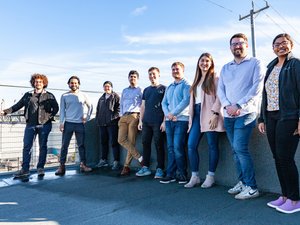
San Francisco carbon removal startup Charm Industrial has raised $100 million in Series B funding and inked deals to remove 140,000 tons of carbon by 2030.
The round was led by General Catalyst and included Lowercarbon Capital, Exor Ventures, Kinnevik, Thrive Capital and Elad Gil.
In the nascent carbon removal sector, Charm is one of the few companies actually fulfilling orders on carbon removals, claiming 6,200 tons to date more than any other company in the space. Unlike tree planting or "carbon offsets," carbon removals aim to permanently sequester carbon to prevent it from entering the atmosphere and contributing to climate change.
Charm's own novel method of removals involves collecting farm waste biomass, turning it into a bio oil, then injecting it back into the ground. Essentially the process prevents the biomass from decomposing and releasing CO2 into the atmosphere.
The company has recently inked two major deals to remove carbon. The first is with Frontier, a consortium of major tech companies led by Stripe with a mission to jump-start the carbon removal market with pre-purchase agreements, for 112,000 tons at $53 million. JPMorgan Chase is purchasing another 28,500 tons over the next five years from Charm as part of a broader initiative by the bank to spend $200 million to remove 800,000 tons of carbon.
Peter Reinhardt, CEO and co-founder of Charm, says the new funding will be used to scale the company's carbon removal capacity to meet the large orders. The company has a headquarters in San Francisco and similar size facility Fort Lupton, Colorado, but most of its carbon removal operations occur in a distributed fashion at farms across America's heartland with mobile pyrolyzers that convert biomass to oil.
"We need to scale up way faster — we've delivered a little over 6,000 tons, but now signed contracts for over 140,000 tons," Reinhardt said. "So we have a lot of delivery to do and that means scaling up pyrolyzer production and capacity, scaling up injection wells and there's a lot of work to be done on the engineering, manufacturing and operations sides."
Despite an overall cooling in venture capital funding, climate tech has managed to stay resilient thanks in part to promises in the recently passed Inflation Reduction Act to steer federal funds toward some startups. While carbon removals are mentioned in the law, it only promises tax credits to a very niche type of carbon removal — direct air capture that deposits carbon into saline aquifers. This means that only a very small number of carbon removal startups stand to gain from the act.
However, Reinhardt said hopes the law will be amended to allow for a broader host of carbon removal techniques to begin receiving subsidies from the act..
"It's true that the ‘45 Q’ tax credits are in an extremely narrow state, but I think Congress is working pretty hard on trying to figure out how to support carbon removal more broadly," he said. "So we won't get any direct support from the Inflation Reduction Act, but I expect we'll kind of see some additional tailwinds from its support of the industry."








